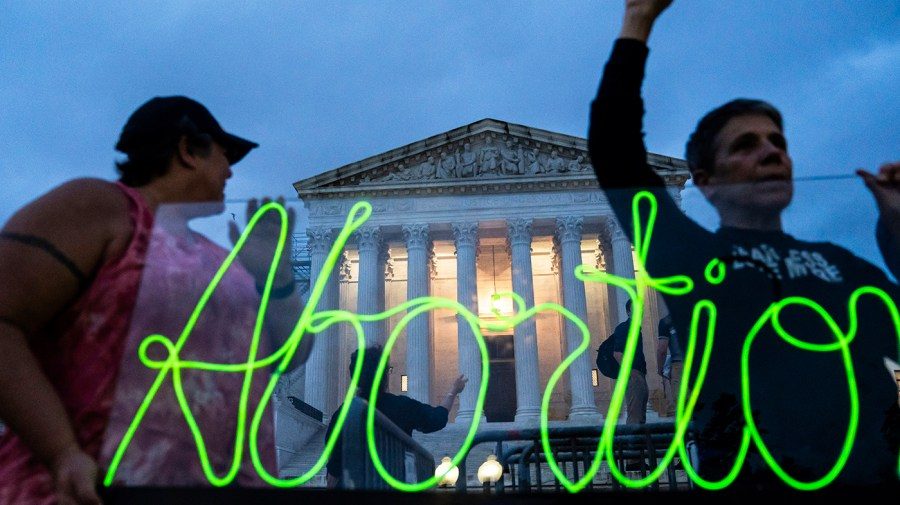Former President Trump stance on abortion has become more moderate as the 2024 campaign has gone on, while Vice President Harris sought to center reproductive rights since launching her campaign this summer.
Trump earlier this month said he would veto a hypothetical national abortion ban if re-elected, after months of dodging the question. He has repeatedly said abortion laws should be left to the states, but says abortion bans should include exceptions for rape, incest and the life of the mother.
At the same time, Trump has repeatedly taken credit for the 2022 overturning of Roe v. Wade, which resulted in a patchwork of state abortion laws, including bans in many GOP-led states.
Democrats argue voters should not trust Trump to block a national abortion ban, due to his role in overturnign Roe and record of contradictory statements on abortion rights. As recently as March, Trymp indicated that a federal 15-week abortion ban was “very reasonable.”
And in August, Trump suggested Florida’s six-week abortion ban was too strict, but days later said he was opposed to a constitutional amendment that would overturn the law and protect access to abortion.
Trump also told CBS News that he would not use the Comstock Act to restrict access to abortion pills, as some of his critics fear.
Trump’s tone on abortion is notably softer than it was during his first-presidential campaign. In 2016, Trump called himself “pro-life,” pledged to defund Planned Parenthood if elected and said women should be punished for having abortions if they were made illegal.
Meanwhile, Harris has made abortion rights acenterpiece her campaign—pledging to “restore reproductive freedom” if elected president.
In her speech at the Democratic National Convention, Harris promised that if Congress were to pass a bill reinstating the protections offered by Roe v. Wade she would “proudly sign it into law” if elected president.
However, as long as the Senate maintains the filibuster, such a law is highly unlikely to make it to the president’s desk due to GOP opposition.
In September, Harris said she supports removing the filibuster to help codify Roe v. Wade during an interview with Wisconsin Public Radio. The Senate procedure requires 60 votes to advance most legislationl Harris said that she wants to drop the threshold to 51 votes.
Harris has been the Biden administration’s point person for abortion rights over the past three years, since the Supreme Court overturned the long-standing federal right to the procedure.
As a California senator, Harris voted against a 2019 bill that would have prevented any federal funds from going towards abortion and in 2017 she co-sponsored a bill that would have prevented local and state governments from imposing restrictions on abortions.

